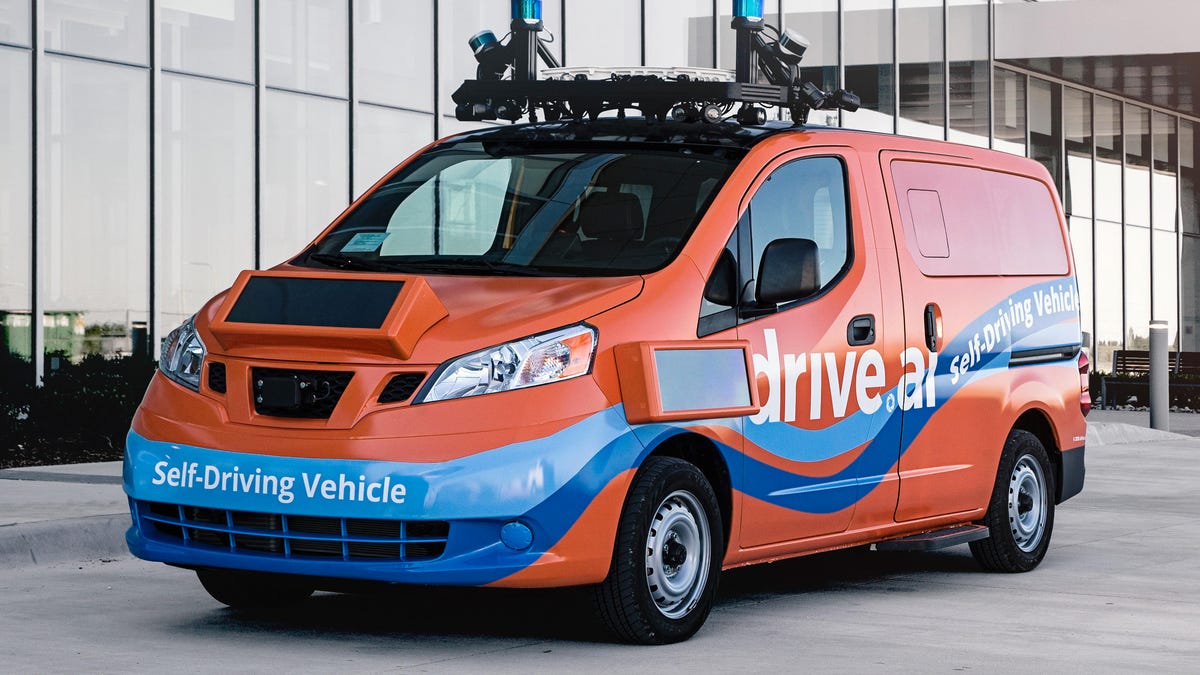Drive.ai launches on-demand self-driving pilot in Frisco
There's no missing these autonomous vans, that's for sure.

Earlier this year, Drive.ai promised that it would launch its first self-driving shuttle service in Frisco, Texas, some time in July. It came down to the buzzer, but it happened.
Drive.ai announced this week that its autonomous shuttle pilot is now operational in Frisco. The free program relies on Drive.ai's new app, which allows its users to hail a ride in one of Drive.ai's self-driving vans -- Nissan NV200s, if you're curious.
The signs on the van aren't for its users -- it's so the public knows what the van is trying to do.
Drive.ai's van is a little different than the ones you've seen wearing Waymo livery. In addition to all the extra autonomy-enabling hardware mounted on the roof, these Nissan NV200s have box-shaped outcroppings on each side. These are actually to let people around the vehicle know what's going on, whether it's waiting at a crosswalk for someone to pass or parked on the side of the road waiting on a customer.
Unlike Waymo's efforts in Phoenix, Drive.ai's pilot program will still feature safety drives up front, who will be able to assume control if the car ends up in a tricky situation. Eventually, the company hopes to offload that responsibility to a "chaperone" who sits shotgun and simply oversees everything, with a remote operator able to take control if the car determines it needs help.
In a Medium post, Drive.ai details the work it's put into this project. Not only did Drive.ai engineer its pilot program with the help of Frisco's local transit authority, it spent a great deal of time preparing the cars themselves. The company spent four months traveling every inch of its geo-fenced route, including parking lots. It also logged more than 1 million miles in its simulator, which it used to throw all sorts of edge cases at the car's software, in the hopes that it'll be prepared for just about anything that could happen.
Drive.ai is an early entry in public pilot programs. Its most successful competition to date is Waymo, which has been operating a similar program in the Phoenix area following loads of development time. Like Drive.ai, Waymo's efforts are limited to a geo-fenced area that will hopefully expand as the company and the cars gain experience on public roads.

